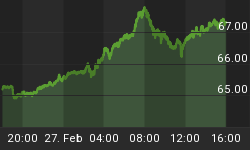An article Friday reported that in October Canada added only a net 1,800 jobs when economists had been expecting a net gain of 10,000. This where 37,000 government jobs were added in October. The offset is found in a:
-
loss of 20,000 private sector jobs in October; and,
-
15,000 reduction in self-employed persons.
Concurrently, the work force is said to have increased by 18,000. It is coincident that 18,000 is a multiple of 1,800 where those two numbers pertain to different statistics. In tabular form:
| Government jobs added | 37,000 | |
| Private sector jobs lost | 20,000 | |
| Reduction in self-employed | 15,000 | 35,000 |
| Net new jobs (rounded) | 2,000 | |
| Expected new jobs | 10,000 | |
| Work Force Increase | 18,000 | |
| Net new unemployed | 16,000 |
Consider the following:
-
no economy can progress and grow on the back of public sector jobs;
-
October is a month where seasonally in Canada there ought to be increased jobs activity, not decreased jobs activity. This as contrasted to the late spring and the summer months where one would better understand seasonal lows in job creation;
-
Canada's unemployment rate held at 7.4%, with the youth unemployment rate (persons under 25) reported to be 14.7%. The latter can't be seen as good, although it is certainly better than the horrid youth unemployment rates in some other countries. For example the 27 country European Union youth unemployment rate average is now 22.8%, and in Greece, France, Ireland, Italy, Spain and the United Kingdom currently rings in at 55.6%, 25.7% 34.5%, 35.1%, 54.2% and 20.4% respectively;
-
the October loss in private sector jobs in Canada is a 'red flag', and if that continues into November and beyond Canada's economic buoyancy and 'broad isolation from the world's economic problems' broadly experienced to date is likely to be short-lived from here; and,
-
in the U.S. the broadly quoted number of 'monthly net new employed' needed just to keep up with population increases is about 125,000. Adopting the usual 10:1 Canada/U.S. population ratio, even Canadian economist estimates for October would have fallen short of the U.S. equivalency minimum, as 10 X 10,000 is only 80% of 150,000. 10 X 1,800 (October net Canadian reported job creation) is but 18,000. Imagine what would happen to President Obama's election chances tomorrow night if the U.S. Labor Department had reported 18,000 net new U.S. job creations in October, instead of the 171,000 it did report.
In the past few weeks I have said on more than one occasion that I don't think Canadian's should be complacent, nor should they adopt an 'it can't happen here' attitude as they smugly watch what is happening in the Eurozone and the United States.
Canada seems to be approaching a stoplight that has turned orange - or so I think - and if you are a Canadian with your wealth in the financial markets I suggest you keep your antenna up and your radar screen 'on bright'.
Topical References: Canada's labour pains not over yet, experts say, from The Financial Post, John Shmuel, November 2, 2012 - reading time 3 minutes. Also read:
-
Data Snap: Canada Job Creation Slows Sharply in October, from Nasdaq, Nirmala Menon, November 2, 2012 - reading time 3 minutes;
-
Canada's jobless rate still 7.4%, from UPI.com, November 2, 2012 - reading time 2 minutes; and,
-
Meltdown Coming: Canada Is Bleeding Private Sector Jobs, And Its Housing Market Is Tanking, from Business Insider, Michael Shedlock, November 4, 2012 - reading time 3 minutes.















